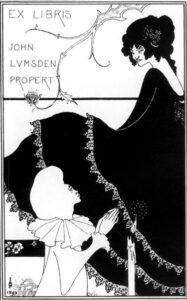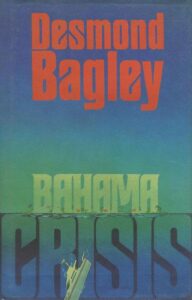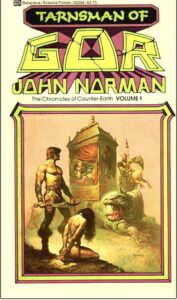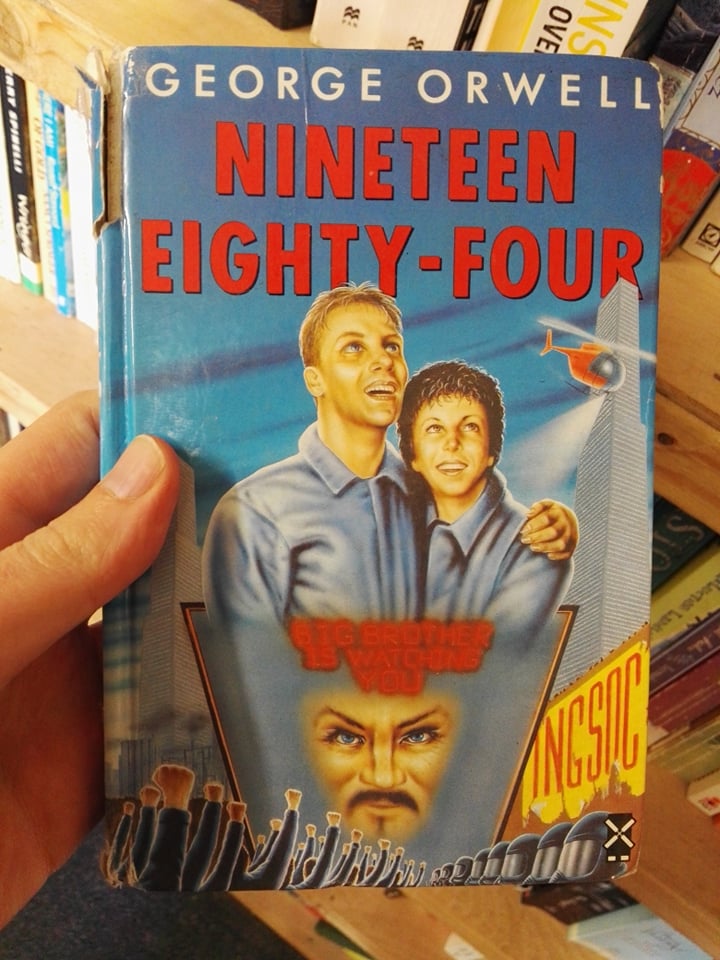an annoying but perhaps necessary note; “Alan (or Allan, or Allen) Smithee” is a pseudonym used by Hollywood film directors when they wish to disown a project
Watch out, this starts off being insultingly elementary, but then gets complicated and probably contradictory, quite quickly.
Countries, States and religions are not monoliths and nor are they sentient. They don’t have feelings, aims, motivations or opinions. So whatever is happening in the Middle East isn’t ‘Judaism versus Islam’ or even ‘Israel versus Palestine’, any more than “the Troubles”* were/are ‘Protestantism versus Catholicism’ or ‘Britain versus Ireland’.
* a euphemism, which, like most names for these things is partly a method of avoiding blame – as we’ll see
Places and atrocities aren’t monoliths either; Srebrenica didn’t massacre anybody**, the Falkland islands didn’t have a conflict, ‘the Gulf’ didn’t have any wars and neither did Vietnam or Korea. But somebody did. As with Kiefer Sutherland and Woman Wanted in 1999 or Michael Gottlieb and The Shrimp on the Barbie in 1990 and whoever it was that directed Gypsy Angels in 1980, nobody wants to claim these wars afterwards. But while these directors have the handy pseudonym Allan Smithee to use, there is no warmongering equivalent, and so what we get is geography, or flatly descriptive terms like ‘World War One’, which divert the focus from the aggressor(s) and only the occasional exception (The American War of Independence) that even references the real point of the war. But, whether interfered with by the studio or not, Kevin Yagher did direct Hellraiser: Bloodline, just as certain individuals really are responsible for actions which are killing human beings as you read this. Language and the academic study of history will probably help to keep their names quiet as events turn from current affairs and into history. Often this evasion happens for purely utilitarian reasons, perhaps even unknowingly, but sometimes it is more sinister.
** see?
As the 60s drew to its messy end, the great Terry “Geezer” Butler wrote lines which, despite the unfortunate repeat/rhyme in the first lines, have a Blakean power and truth:
Generals gathered in their masses
Just like witches at black massesBlack Sabbath, War Pigs, 1970
There is something sinister and even uncanny in the workings of power, in the distance between avowed and the underlying motivations behind military action. Power politics feels like it is – possibly because intuitively it seems like it should be – cold and logical, rather than human and emotional. It doesn’t take much consideration though to realise that even beneath the chilly, calculated actions of power blocs there are weird and strangely random human desires and opinions, often tied in with personal prestige, which somehow seems to that person to be more important than not killing people or not having people killed.
Anyway, Geezer went on to say:
Politicians hide themselves away
They only started the war
Why should they go out to fight?
They leave that role to the poorStill Black Sabbath, War Pigs (1970)
And that’s right too; but does that mean Butler’s ‘poor’ should take no responsibility at all for their actions? In the largest sense they are not to blame for war or at least for the outbreak of war; and conscripts and draftees are clearly a different class again from those who choose to “go out to fight.” But. As so often WW2 is perhaps the most extreme and therefore the easiest place to find examples; whatever his orders or reasons, the Nazi soldier (and there were lots of them) who shot a child and threw them in a pit, actually did shoot a child and throw them in a pit. His immediate superior may have done so too, but not to that particular child. And neither did Himmler or Adolf Hitler. Personal responsibility is an important thing, but responsibility, especially in war, isn’t just one act and one person. Between the originator and the architects of The Final Solution and the shooter of that one individual child there is a chain of people, any one of whom could have disrupted that chain and even if only to a tiny degree, affected the outcome. And that tiny degree may have meant that that child, that human being, lived or died. A small thing in a death toll of something over 6 million people; unless you happen to be that person, or related to that person.
As with the naming of wars and atrocities, terms like “genocide” and “the Holocaust” are useful, especially if we want – as we clearly do – to have some kind of coherent, understandable narrative that can be taught and remembered as history. But in their grim way, these are still euphemisms. The term ‘the Holocaust’ memorialises the countless – actually not countless, but still, nearly 80 years later, being counted – victims of the Nazis’ programme of extermination. But the term also makes the Holocaust sound like an event, rather than a process spread out over the best part of a decade, requiring the participation of probably thousands of people who exercised – not without some form of coercion perhaps, but still – their free will in that participation. The Jewish scholar Hillel the Elder’s famous saying, whosoever saves a life, it is as though he had saved the entire world is hard to argue with, insofar as the world only exists for us within our perceptions. Even the knowledge that it is a spinning lump of inorganic and organic matter in space, and that other people populate it who might see it differently only exists in our perceptions. Or at least try to prove otherwise. And so the converse of Hillel’s saying – which is actually included in it but far less often quoted – is Whosoever destroys one soul, it is as though he had destroyed the entire world. Which sounds like an argument for pacifism, but while pacifism is entirely viable and valuable on an individual basis as an exercise of one’s free will* – and on occasion has a real positive effect – one-sided pacifism relies on its opponents not taking a cynically Darwinian approach, which is hopeful at best. Pacifism can only really work if everyone is a pacifist, and everyone isn’t a pacifist.
*the lone pacifist can at least say, ‘these terrible things happened, but I took no part in them’, which is something, especially if they used what peaceful means they could to prevent those terrible things and didn’t unwittingly contribute to the sum total of suffering; but those are murky waters to wade in.
But complicated though it all is, people are to blame for things that happen. Just who to blame is more complicated – more complicated at least than the workable study of history can afford to admit. While countries and religions are useful as misleading, straw man scapegoats, even the more manageable unit of a government is, on close examination, surprisingly hard to pin down. Whereas (the eternally handy example of) Hitler’s Nazi Party or Stalin’s Council of People’s Commissars routinely purged heretics, non-believers and dissidents, thus acting as a genuine, effective focus for their ideologies and therefore for blame and responsibility, most political parties allow for a certain amount of debate and flexibility and therefore blame-deniability. Regardless, when a party delivers a policy, every member of that party is responsible for it, or should publicly recuse themselves from it if they aren’t.
The great (indeed Sensational) Scottish singer Alex Harvey said a lot of perceptive things, not least and “[Something] I learned from studying history. Nobody ever won a war. A hundred thousand dead at Waterloo*. No glory in that. Nobody needs that.” Nobody ever won a war; but plenty of people, on both sides of every conflict, have lost one – and, as the simple existence of a second world war attests, many, many people have lost a peace too.
*Modern estimates put it at ‘only’ 11,000 plus another 40,000 or so casualties; but his point stands
But the “causes” of war are at once easily traced and extremely slippery. Actions like the 1939 invasion of Poland by the armies of Germany and the USSR were, as military actions still are, the will of certain individuals, agreed to by other individuals and then acted upon accordingly. You may or may not agree with the actions of your government or the leaders of your faith. You may even have had some say in them, but in most cases you probably haven’t. Some of those dead on the fields of Waterloo were no doubt enthusiastic about their cause, some probably less so. But very few would have had much say in the decisions which took them to Belgium in the first place.
The buck should stop with every person responsible for wars, crimes, atrocities; but just because that’s obviously impossible to record – and even if it wasn’t, too complex to write in a simple narrative – that doesn’t mean the buck should simply not stop anywhere. Victory being written by the winners often means that guilt is assigned to the losers, but even when that seems fair enough (there really wouldn’t have been a World War Two without Hitler) it’s a simplification (there wouldn’t have been an effective Hitler without the assistance of German industrialists) and a one-sided one (it was a World War because most of the leading participants had already had unprovoked wars of conquest). That was a long sentence. But, does the disgusting history of Western colonialism, the arguably shameful treatment of Germany by the Allies after WW1 and the dubious nature of the allies and some of their actions make Hitler himself any less personally responsible for the war? And does Hitler’s own guilt make the soldier who shoots a child or unarmed adult civilians, or the airman who drops bombs on them any less responsible for their own actions?
Again; only human beings do these things, so the least we can do is not act like they are some kind of unfathomable act of nature when we discuss them or name them. Here’s Alex Harvey again; “Whether you like it or not, anybody who’s involved in rock and roll is involved in politics. Anything that involves a big crowd of people listening to what you say is politics.” If rock and roll is politics, then actual politics is politics squared; and for as long as we settle, however grudgingly or complacently, for pyramidal power structures for our societies then the person at the top of that pyramid, enjoying its vistas and rarefied air should be the one to bear its most sombre responsibilities. But all who enable the pyramid to remain standing should accept their share of it too.
So when you’re helplessly watching something that seems like an unbelievable waste of people’s lives and abilities, pay close attention to who’s doing and saying what, even if you don’t want to, because the credits at the end probably won’t tell you who’s really responsible.

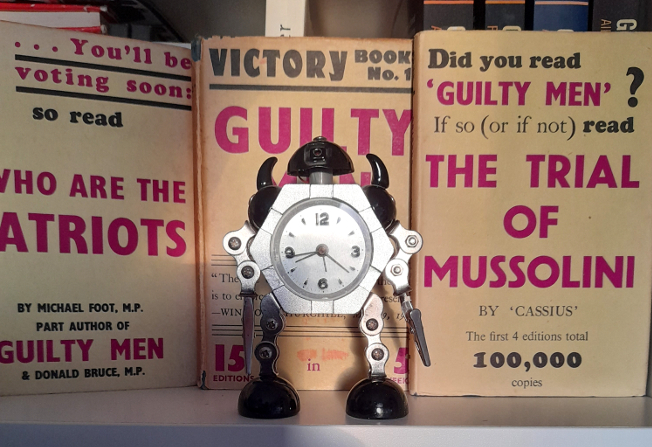


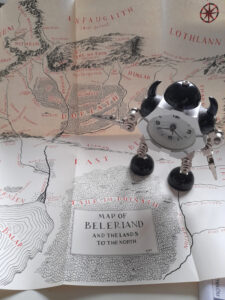
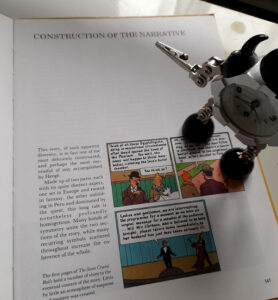
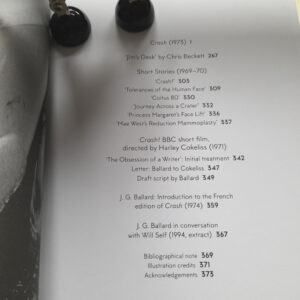

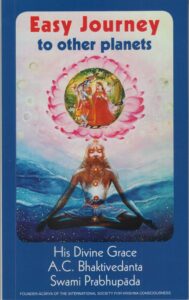 Why is it painful to get rid of books? Pompously, because the books you own are a reflection of yourself; of skins shed and personalities outgrown and discarded, and in a way a direct line back to your (possibly alarming) former selves with their sometimes alien tastes and enthusiasms.* Less pompously, because in general, I want more books, not fewer. I can’t think of an occasion when I got rid of a book simply because I didn’t like or just didn’t want it, though I’m sure it’s happened. And so, for decades I still owned (and may still have somewhere) the little red Gideons Bible that was given out to pupils when starting high school (do they still do that?). Its bookplate (ex-libris? Both terms seem very archaic) hints strongly at the typical kind of 12 year old boy that it was given to: Name: William Pinfold Form: human. Similarly, I may still have the books given to me in the street by Hare Krishna followers, which seems not to happen now but was a frequent enough thing in the early 90s that I can still remember without checking** that they were credited to and/or consisted of teachings by “His Divine Grace A.C. Bhaktivedanta Swami.” They often had nice, pleasingly psychedelic cover paintings but were invariably disappointing to try to read because, even when they had amazing titles like Easy Journey to Other Planets, they were all about Krishna consciousness – who knew?. But these are books that would be impossible to replace (in a personal sense; easy enough to get hold of different copies of them). More complicatedly – and just annoyingly, with space at a premium, I have multiple copies of some favourite books and will probably buy even more copies of them, if I come across them with covers that I like but don’t have and if they are cheap.
Why is it painful to get rid of books? Pompously, because the books you own are a reflection of yourself; of skins shed and personalities outgrown and discarded, and in a way a direct line back to your (possibly alarming) former selves with their sometimes alien tastes and enthusiasms.* Less pompously, because in general, I want more books, not fewer. I can’t think of an occasion when I got rid of a book simply because I didn’t like or just didn’t want it, though I’m sure it’s happened. And so, for decades I still owned (and may still have somewhere) the little red Gideons Bible that was given out to pupils when starting high school (do they still do that?). Its bookplate (ex-libris? Both terms seem very archaic) hints strongly at the typical kind of 12 year old boy that it was given to: Name: William Pinfold Form: human. Similarly, I may still have the books given to me in the street by Hare Krishna followers, which seems not to happen now but was a frequent enough thing in the early 90s that I can still remember without checking** that they were credited to and/or consisted of teachings by “His Divine Grace A.C. Bhaktivedanta Swami.” They often had nice, pleasingly psychedelic cover paintings but were invariably disappointing to try to read because, even when they had amazing titles like Easy Journey to Other Planets, they were all about Krishna consciousness – who knew?. But these are books that would be impossible to replace (in a personal sense; easy enough to get hold of different copies of them). More complicatedly – and just annoyingly, with space at a premium, I have multiple copies of some favourite books and will probably buy even more copies of them, if I come across them with covers that I like but don’t have and if they are cheap.